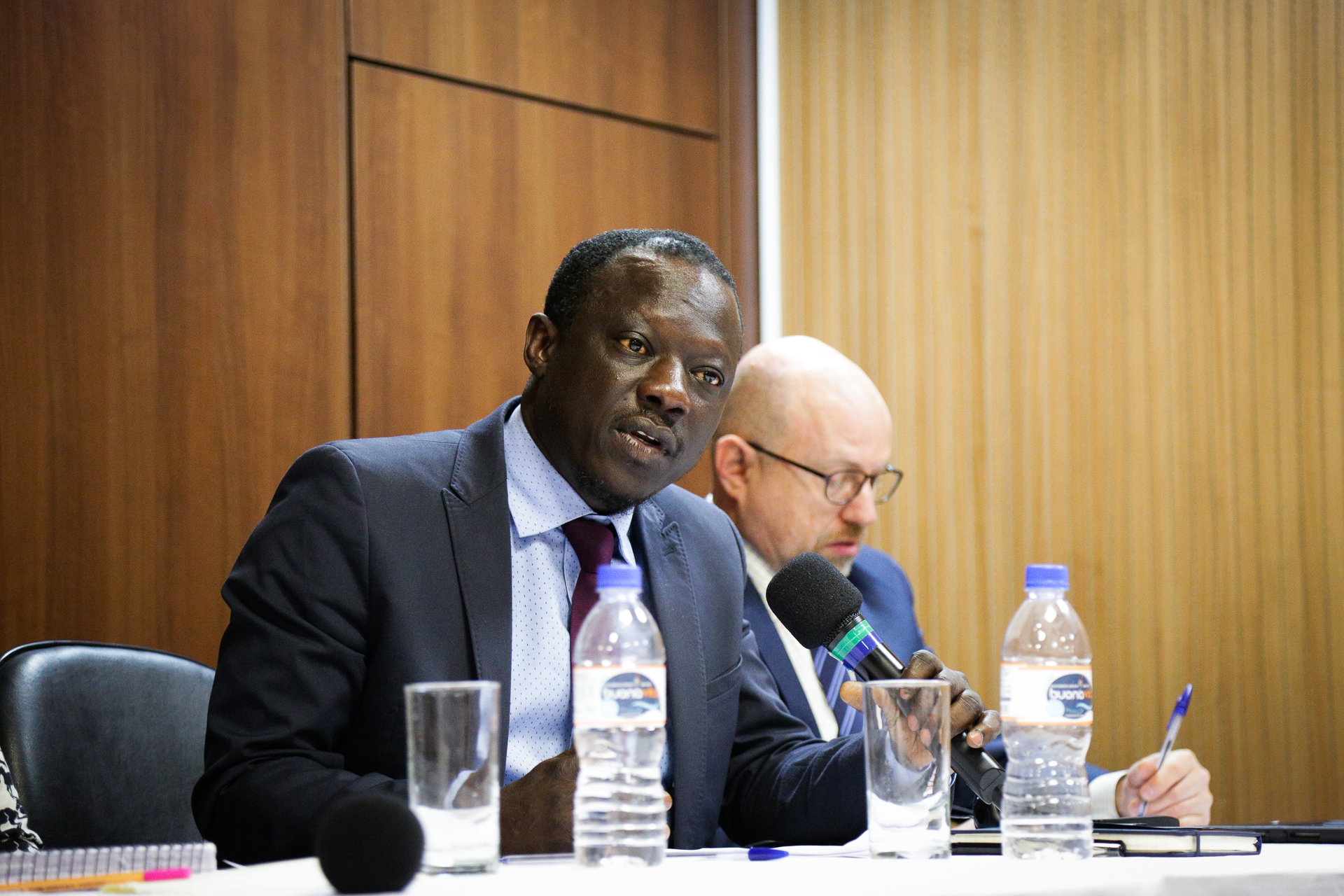7 UN recommendations for Brazil to guarantee a safe and democratic civic space
United Nations expert calls for swift investigation of the Marielle case, measures to guarantee the rights of indigenous and traditional peoples, and consideration of international human rights standards in laws dealing with terrorism
 O relator especial da ONU sobre a Liberdade de Reunião Pacífica e Associação, Clément Nyaletsossi Voule (Foto: João Paulo Brito/Conectas)
O relator especial da ONU sobre a Liberdade de Reunião Pacífica e Associação, Clément Nyaletsossi Voule (Foto: João Paulo Brito/Conectas)
The lack of a solution for the Marielle case, attacks on indigenous peoples and proposed legislation to expand the concept of terrorism are some of the problems threatening democracy in Brazil. The assessment was made by Clément Voule, the United Nations Special Rapporteur on the Rights to Freedom of Assembly and of Association. At the end of June, the expert released his recommendations to the Brazilian government.
The UN report was drafted after a 10-day visit by Voule to Brazil in April 2022. During his time in the country, the special rapporteur was in Brasília, Salvador, Rio de Janeiro and São Paulo meeting with authorities, journalists and civil society.
In the document, he also highlighted the threats to the right to freedom of assembly and association in recent years, due to the closure of national participatory mechanisms and the political polarization in the country. “Constitutional guarantees have been negatively affected in recent years as a result of the proliferation of laws and decrees adopted by Brazilian authorities in an attempt to undermine those rights,” said the expert. “Such laws and decrees have weakened the country’s democracy.”
Vibrant civil society
Despite the problems, the special rapporteur underscored “the crucial role played by Brazil’s vibrant civil society in safeguarding the country’s democracy and cohesion”. In his assessment, “civil society has resisted populist discourse undermining the legitimacy of its work and has also resisted the increased legal measures and laws aimed at restricting civic space and participation in public affairs”. As far as he is concerned, the work of civil society was “particularly notable in the recent elections, when communities were able to peacefully exercise their right to vote and elect representatives”.
According to Camila Asano, executive director of Conectas, the report presents important problems that still persist even in the current context: “pending in the National Congress are legislative proposals that attempt to restrict, monitor and attack the activities of social movements and civil society organizations. The opinion of the special rapporteur is therefore one more instrument to call for the expansion of social participation in the country”. On June 30, Conectas staged at the headquarters of the UN, in Geneva (Switzerland), a side event together with the organization Terra de Direitos to speak to the rapporteur about his report and other points that should be considered for the protection of civil society. In addition to Asano and Volue, the meeting was attended by Gabriel Dantas (Geledés, via video), Camila Gomes (Terra de Direitos) and Lucineia do Rosário (MST).
Another reported problem was the police repression of certain social groups, including indigenous peoples. Recently, a religious event of the Guarani Mbya people of the Jaraguá Indigenous Land, related to the national movement in opposition to the approval of Bill 490/2007, on the demarcation of indigenous lands in Brazil (known as the Time Frame Bill), was violently repressed by the São Paulo State Military Police, in violation of the community’s right to free expression and worship.
Dialogue with the rapporteur
In a session at the UN Human Rights Council, Brazilian civil society organizations made a statement highlighting the problems listed by the rapporteur and asked Voule to “urge the Brazilian State to respect the obligations and commitments assumed on the topic and to implement the recommendations made in the report after his visit to Brazil, including the recommendation that reinforces that national legislation must guarantee freedom of association as a way of preserving an effective and plural democratic system”. The statement was signed by the organizations Conectas, Justiça Global, Institute for the Defense of the Right to a Defense, Terra de Direitos, the Criminal Justice Network and Article 19.
See seven UN recommendations for Brazil to guarantee a safe and democratic civic space
- Ensure, in law and in practice, that the rights to freedom of peaceful assembly and of association are freely exercised so that they may play a decisive role in the transition to and maintenance of an effective democratic system and act as a channel for dialogue, pluralism, inclusiveness, tolerance and broad-mindedness.
- Indigenous and traditional communities should be free from fear of persecution and should have access to full and detailed information to organize themselves freely in order to build up autonomous decision-making processes. States should adopt all necessary measures to ensure the demarcation of indigenous and traditional peoples’ lands.
- Refrain from the arbitrary or unlawful use of force by law enforcement officials against those taking part in peaceful assemblies and also refrain from the use of digital technology to silence, unlawfully or arbitrarily surveil or harass individuals.
- Investigate effectively, promptly, thoroughly and impartially Marielle Franco’s murder and take action against those responsible, including the organizer, in accordance with domestic and international law.
- Ensure, in law and in practice, that the rights to freedom of peaceful assembly and of association are freely exercised so that they may play a decisive role in society.
- Ensure that victims of violations and abuses of the rights to freedom of peaceful assembly and of association have the right to an effective judicial remedy and obtain redress.
- Ensure that a wide range of civil society actors with diverse views are systematically consulted before the adoption of any legislative initiative and policies.


